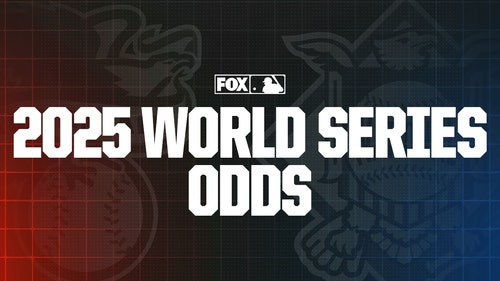
Money no issue as Nats pursue Fielder
First off, let’s dispense with the silliness that the Nationals won’t sign Prince Fielder because they already have Adam LaRoche at first base. If you’re going to pay Fielder $150 million or some other big number, swallowing part or most of the remaining $9 million commitment to LaRoche is simply the price of doing business.
Second, let’s not fret over Nationals owner Ted Lerner overpaying Fielder big after — ahem — overpaying free-agent outfielder Jayson Werth a year ago. Lerner is among the game’s wealthiest owners according to Forbes and — in keeping with the theme of the offseason — the Nats’ local TV revenue is about to increase dramatically.
That revenue, reported to be $29 million a year, soon will “double, triple or more,” according to a major-league source. The Nats are due to “reset” their contract with the Mid-Atlantic Sports Network to ensure that their rights fee is still market value. If no deal can be reached with the Orioles, the larger stake-holder in MASN, the case will go to arbitration.
There’s your Prince money.
The Prince logic is just as clear — flawed perhaps, but clear.
The Nationals likely would contend in 2012 and beyond if they added Fielder on top of left-hander Gio Gonzalez. Third baseman Ryan Zimmerman would particularly benefit; he had his two best seasons with another left-handed slugger, Adam Dunn, hitting behind him. The front-running D.C. market would be energized, if not downright transformed.
It’s reasonable to assume that Prince wants to join a stronger club than the Mariners or Orioles and sign a longer deal than the Cubs are willing to give him. Unless there is a mystery team — something that can’t be ruled out with a player of Fielder’s stature — the Nats make the most sense. So much sense, that one source with knowledge of the team’s thinking says that he “expects” a Fielder deal to happen.
Heck, some in baseball have expected it to happen all along, considering that the Nationals are Team Boras, as in Scott Boras. He is the agent who represents not just Fielder, but also Werth, not just right-hander Stephen Strasburg, but also outfielder Bryce Harper, not just second baseman Danny Espinosa, but also third-base prospect Anthony Rendon.
You get the idea.
When Boras told me last week that to get Prince, “owners will move players off their teams that already occupy positions,” I thought right away of the Nationals and LaRoche. Heck, Boras could map out a five- or even 10-year plan for the Nats based solely on his clients — and Lerner and his general manager, Mike Rizzo, repeatedly have shown that they are willing to listen.
The Nats still need to sign Zimmerman long-term; he is a free agent after 2013. But if they had the money for Werth and Fielder, then it would be difficult for them to say that they didn’t have the money for Zimmerman, who grew up in Virginia Beach, Va., attended the University of Virginia and was the team’s first-ever draft pick.
Assuming, of course, they didn’t trade Zimmerman first.
Preposterous? Follow the money. And follow the Boras clients.
Rendon, the Nationals’ No. 1 draft pick in 2011, plays third base. If the Nats signed Fielder, they could not move Zimmerman to first, a move Zimmerman might oppose, anyway.
Yet, if the Nats traded Zimmerman, they could clear not just a position for Rendon, but also a high-salaried slot for yet another Boras client — center fielder Michael Bourn, who will be a free agent next offseason. For now, the Nats’ plan is to use Werth as a stopgap in center as they wait for Bourn and other center fielders to hit the open market.
The Nats would not trade Zimmerman right away; he would have greater value if he rebounded after missing time with fluke injuries in 2008 and '11. Rendon, meanwhile, is coming off a strained throwing shoulder and has yet to play a professional inning. Still, the potential for a deal is obvious — and the trigger would be if Zimmerman wanted a contract that the club deemed excessive.
Of course, all of this assumes that the Nationals actually will sign Fielder one year after awarding Werth a back-loaded, seven-year, $126 million monstrosity with a full no-trade clause. Fielder will want a deal at least that long and a full no-trade of his own. Yes, he is only 27. But his portly physique would be a greater risk for a National League team that cannot use a DH except in interleague road games.
The solution for both sides — in fact, for any Fielder suitor — might be an opt-out clause after three or four years. Such a deal would provide the team with an immediate bang while giving Fielder the chance to hit the market again at 30 or 31, when teams such as the Yankees, Red Sox, Dodgers and Mets might be in better position to bid.
However the deal is structured, the Nationals can afford it. The amount of money won’t stop them. The presence of LaRoche won’t stop them. The only thing that might stop them is Lerner saying no to Boras, and we’ve yet to see that happen, have we?










